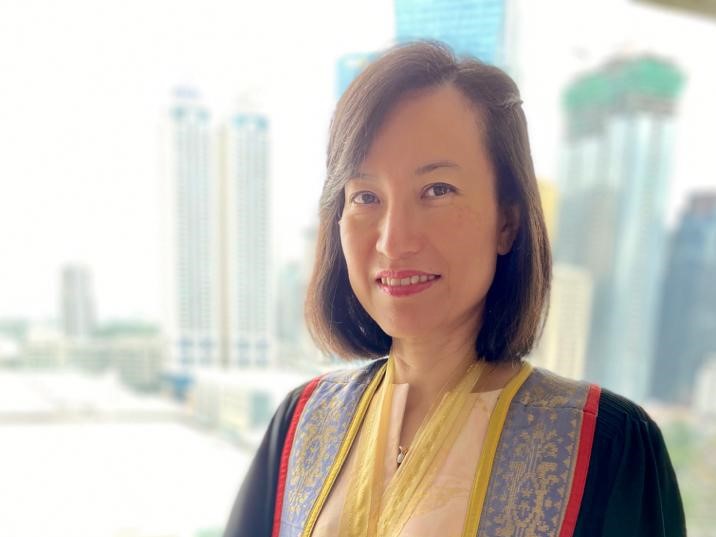KUALA LUMPUR, Oct 7 — A study showed that setting up coronavirus-free hospital areas could reduce the risk of post-surgery deaths from lung infections linked to Covid-19, as it maintained that cancer operations must continue even during the pandemic.
Led by researchers at the University of Birmingham, the research by the COVIDSurg Collaborative, which comprises experts from over 130 countries, including Malaysia, found that patients who had their operation and hospital care in “Covid-19 free” areas enjoyed better outcomes.
According to the study, “Covid-19 free” hospital areas improved the safety of surgery through a strict policy of separating Covid-19 patients from those who undergo operations.
“As many parts of the world, including Malaysia, face a resurgence of the pandemic, more patients will face delays. When operations for cancer and other time-dependent conditions are delayed, patients may progress to a point where they are surgically untreatable,” Professor Dr April Camilla Roslani, the president of the College of Surgeons, Academy of Medicine of Malaysia (AMM), said in a statement.
“During the first wave in Malaysia, designation of Covid-19 hospitals, and hybrid Covid-19 hospitals with Covid-19 free areas, enabled isolation of affected patients, and safe resumption of elective cancer surgeries without excessive delay.
“Nevertheless, we must remain vigilant and maintain best practices in light of the recent surge. Re-training in protocols, and procurement of adequate testing facilities and effective protective equipment should be done in a pro-active, rather than reactive way,” Dr April added.
Another COVIDSurg Collaborative study projected last May a backlog of 151,717 surgeries in Malaysian hospitals during a 12-week period of hospital services’ disruption due to the Covid-19 outbreak, requiring an 11-month backlog clearance time.
Among participating Malaysian hospitals in the study, the overall surgery cancellation rate was 70.9 per cent. The surgeries most subject to cancellation were those for benign diseases (81.5 per cent), followed by cancer surgery (41 per cent) and obstetrics (26.1 per cent).
Amid a massive spike of daily Covid-19 cases reported nationwide in Malaysia since October 1, Sungai Buloh Hospital in Selangor has turned into an exclusive Covid-19 facility effective October 2, treating only coronavirus patients.
COVIDSurg Collaborative’s new study, which was published today in the Journal of Clinical Oncology, examined data from 9,171 patients in 55 countries, across five different continents from the beginning of the pandemic until the middle of April this year.
Researchers discovered that pulmonary complications were 2.2 per cent in “Covid-19 free” hospital areas, compared to 4.9 per cent in non-protected areas.
The death rate after surgery also differed at 0.7 per cent in “Covid-19 free” hospital areas, compared to 1.7 per cent in non-protected areas.
However, only 27 per cent of study respondents received their care in protected areas.
“As health providers restart elective cancer surgery, they must look to protect cancer surgery patients from harm by investing in dedicated Covid-19 free hospital areas. These can be tailored to the resources available locally, ensuring that patients treated for Covid-19 are not mixed with patients needing surgery,” Dr Aneel Bhangu from the National Institute for Health Research (NIHR) was quoted saying.
“However, this represents a significant challenge to many hospitals around the world. Governments and hospital providers must help to fund this major international redesign of surgical services and provide protection for patients. Covid-19 free areas could save many lives during future waves, by allowing surgery to continue safely despite high rates of infection in the community.”
It is estimated that in Malaysia, around 180,000 operations a year are for removal of cancer. The research claimed that setting up Covid-19 free hospital areas could prevent 1,800 unnecessary Covid-19 related deaths after cancer surgery in Malaysia over the next year.
“Major reorganisation of hospital services to provide Covid-19 free areas for elective surgery must be justified by evidence like this, as it redirects time and resources away from other services. We have proved that those efforts are essential in protecting patients undergoing surgery during the pandemic,” Dr James Glasbey, the study lead at the University of Birmingham, was quoted as saying.
“Our data showed that Covid-19 free hospital areas were beneficial when the rate of infection in the community was both low and high. We recommend that Covid-19 free areas are set-up in all countries currently affected by the pandemic, including those likely to suffer from future waves.
“However, overcoming the challenges of setting up such pathways, including separate hospitals to provide elective surgery, may lead to unintended consequences. Consequences for hospitals must be carefully monitored to achieve the best balance of healthcare for patients,” he added.
In April, former Health director-general Dr Mohamed Ismail Merican stated that both public and private hospitals in Malaysia have been directed to postpone various clinical services amid the Covid-19 outbreak, as he urged hospitals not to postpone cancer surgery, saying it should not be deemed “elective”.
However, the Ministry of Health (MOH) claimed last April that emergency operations and cancer surgeries in public hospitals had not been halted during the Covid-19 pandemic.
Note at 4.45pm: AMM clarified that setting up Covid-19 free hospital areas could prevent 1,800 unnecessary Covid-19 related deaths after cancer surgery in Malaysia over the next year, not in the United Kingdom, as earlier stated. CodeBlue has amended the article.








